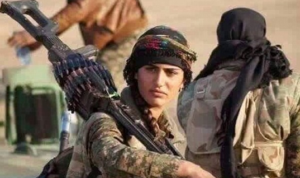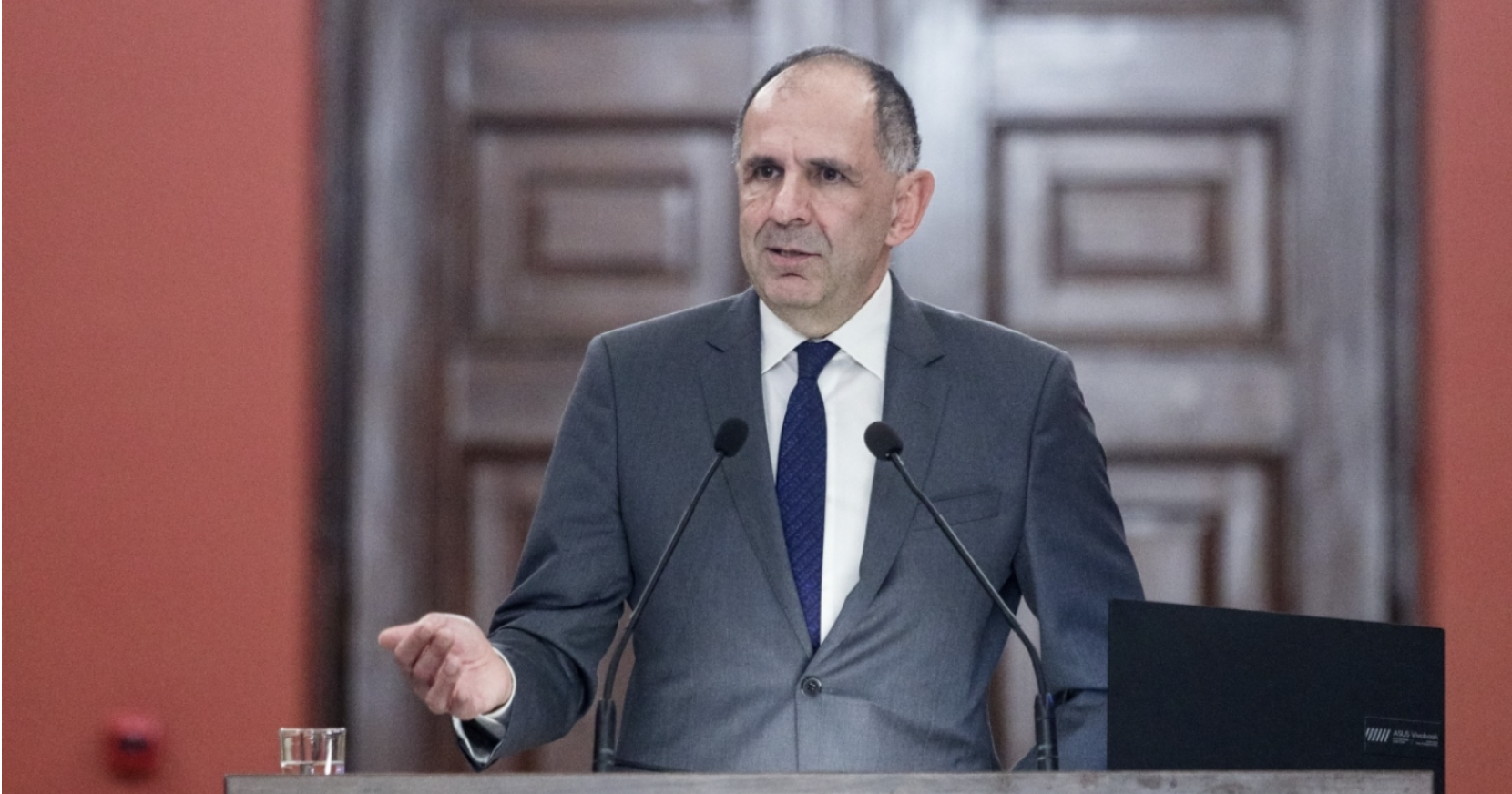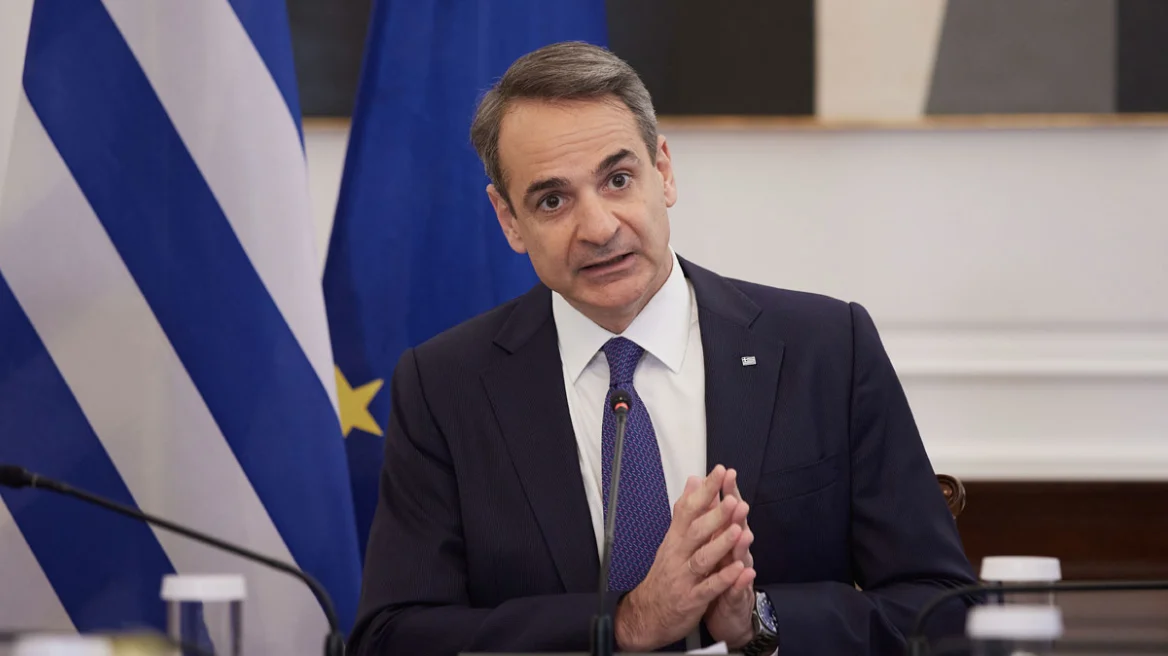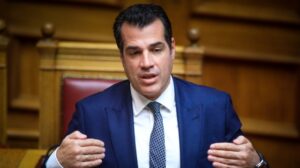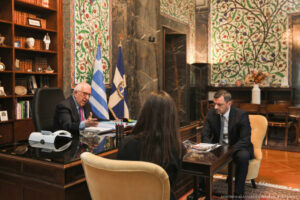To enter the mouth of the cave, one must crawl on all fours or slide forward as if imitating an upside-down spider. The orifice opens onto a walkway as if made for an adolescent, forcing anyone taller than 5 feet 2 inches to bow their head until the pathway widens into a cavern that measures about 500 to 650 square feet. It is here that two dozen female fighters for the Kurdistan Workers’ Party (PKK) live, learn and sleep. In the fall of 2016, I joined them as part of my yearlong research into the group’s workings and philosophy as well as to interview the young women who have left everything behind to join.
The cavern serves as a fully functioning barracks, clean and relatively warm, with colorful plastic carpets covering much of the floor and neatly packed sandbags with pink and yellow sheet cloth draped over them to divide the grotto into makeshift rooms, including a common area, a library and communal bedrooms. The PKK flags and a portrait of PKK leader Abdullah Öcalan — who since 1999 has been serving a life sentence in solitary confinement on an island off the Turkish coast — cover the sandbag walls, as do pictures of the fallen. Food could be found stuffed in corners and nooks and crannies, organized alongside weapons and ammunition.
I sat down with one of the fighters who goes by the nom de guerre Zinarîn. (The fighters are not allowed to share their birth names for security reasons.) She was almost 18 and had joined a year earlier, when she was a high school student in the city of Siirt, located in southeast Turkey. She recalled the excitement and fear she felt when she sneaked off from class one day and went into the school’s prayer room to change out of her uniform. She then walked off to the prearranged meeting with a PKK member at a safehouse.
“I was afraid to get caught, checking my watch all the time. Would my sister’s class have ended already, and would she have noticed that I was gone? Would my mom already know I was missing by now?” she said. But no one noticed her missing in time to stop her.
At the safehouse, Zinarîn joined two other young people who had arrived under similar circumstances, and the next day they all departed together with their recruiter and formally joined the PKK.
Like most other fighters I interviewed, Zinarîn had aspirations to go to battle and defend and fight for the Kurdish people. It was late in 2014, and the city of Kobani had especially weighed on her mind. Located in northern Syria, Kobani was already besieged by the Islamic State group, who were engaged in full battle with the Kurdish forces of the People’s Protection Units (YPG). (The YPG would later win the battle with the assistance of air cover from U.S. forces.)
But when Zinarîn’s PKK commanders refused to conscript and send her to the front line, she grew frustrated and angry. If not to fight, what else had she signed up to do? Why else had she left her family and friends and everything she knew behind?
“I had seen fighters on TV who were either going to war or dancing and singing,” Zinarîn said, referring to myriad media productions that glorify Kurdish war pursuits and are insatiably consumed by the youth. But “the reality turned out to be very different,” she added.
Zinarîn found herself sitting in a training camp in the mountains discussing books about the PKK ideology by day and shivering under a damp blanket by night. She still felt betrayed by the dissonance between image and reality, “especially when I see martyrs on TV, because then I want to go and fight,” she told me, almost cognizant of the youthful nature of her enthusiasm. The months she had already spent in the mountains with the PKK had brought some maturity and a renewed purpose.
“I don’t yell anymore when I am angry, or act stubbornly,” Zinarîn confided. “That’s what I have learned here, in sessions in which we criticize each other and ourselves. We are adults here,” she said.
Other young fighters echoed Zinarîn’s story. Evîndar, also 18, joined when she was just shy of her 17th birthday to escape her family’s threat of a forced marriage and also “to avenge a cousin” who had died as a PKK fighter.
Read more: Newlines Mag
Ask me anything
Explore related questions
